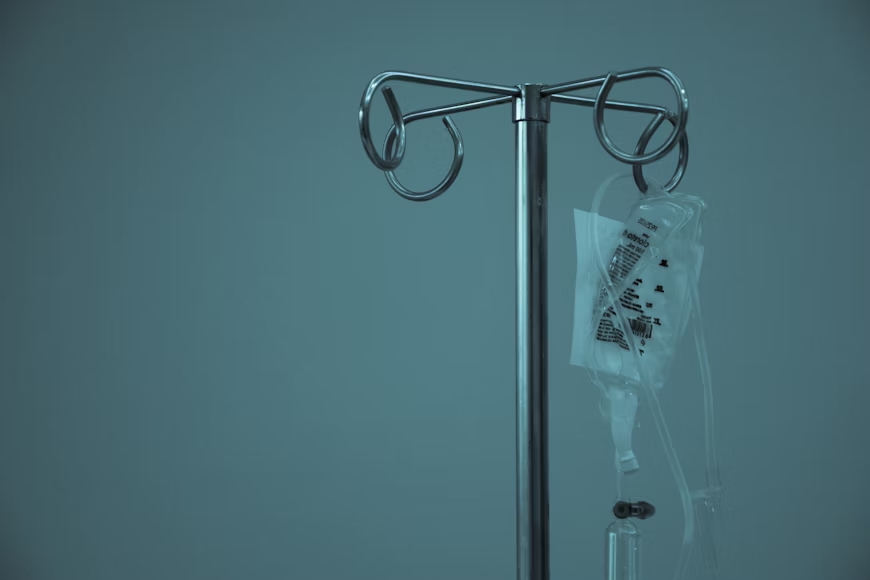State-sanctioned suicide goes by various names. In Canada, it is known legally as Medical Assistance in Dying (MAID), whereas in the United States, it is typically referred to as physician-assisted suicide (PAS). Not long ago, the New York Times reported on the trend toward the legalization of state suicide programs in Europe and North America, noting recent changes in Canadian law wherein terminal illness no longer appears among the requirements for state-funded suicide eligibility. No US law has adopted such a generous approach to suicide, but support for PAS continues to spread, most recently in New York.
Following these developments, Catholic opinion writer Ross Douthat argued that the basic reasoning behind these laws is a desire for medicine to ‘address’ suffering. For Douthat, if medicine cannot adequately address suffering — through pharmaceutical symptom management or cure — those who rely on medicine as society’s preeminent response to suffering have no choice but to turn to “the final solution.” And thus for Douthat, the slide from the more restrained PAS in the US to the more liberal MAID of Canada is indeed a slippery one.
More recently, Louise Perry argued that the tacit role of relieving burdens on state welfare programs played in the growing support for MAID/PAS in Europe and North America. She notes that support for MAID/PAS is correlated with low fertility rates and strained welfare systems, and in practice, many of those who choose state-assisted death in fact do so for socioeconomic reasons. Perhaps even more disturbingly, she points to more than one instance of political insiders from Britain to the Netherlands who have adverted to the benefits of elevated (assisted) suicide rates as a means of welfare cost-saving.
Doubtless, what Douthat and Perry observe is real. But a more profound, more philosophical dilemma lies behind the trend toward legalized euthanasia, touching on the perceived source of human dignity itself.
One of the truly fascinating aspects of the debates around euthanasia is that those who support it overwhelmingly view it as an act of compassion and mercy towards the individual being killed. This stands in contrast to almost every other contentious life issue (abortion, the death penalty, war, etc.), where few consider the act of killing an act of mercy towards the one who is killed (child, condemned, combatant, etc.). Yet as with many striking claims, the peculiarity of the claim is uniquely situated to reveal the peculiar ideology beneath it. For one must ask: what really constitutes the dignity of human life and the human person when murder (understood as the intentional killing of an innocent person) is considered an act of mercy?
At least since Aristotle, Western philosophy has seen reason as the primary source of human uniqueness. Christian tradition has long construed our rational nature as that which marks us as made in the image of God (Summa Theologica (ST) I.93.6.resp). Yet this dignity is not strictly autonomous. Our rational nature is that of personhood, and personhood is defined with respect to the most perfect image of Person, which is revealed in the Trinity. As such, to be an individual of a rational nature (i.e., a person) is to be a distinct rational creature in relation to other rational creatures in such a way that one’s independent being is realized only in relation (ST I.28.4 and ST I.29.3). So one’s dignity is rooted in one’s human nature, but only as it relates to the absolute and unshakable dignity of the whole of which we are a part: the Body of Christ and finally God (ST II-II.64.2.resp). In the words of Scripture, “…you are not your own. For you have been purchased at a price” (1 Cor. 6:19-20).
Yet consider what happens when the definition of person is changed and the notion of relationality intrinsic to the Christian conception of personhood is removed. The dignity of the human being then comes almost exclusively from our ability to make rational choices. To this, it is only a small step to wed the modern philosophical presumption that life’s meaning is ‘created’ by the individual for the individual (roughly known as ‘existentialism’) and so arrive at the conclusion that one’s dignity proceeds from one’s own rational self-ascription thereof. From this worldview, a fetus has only the dignity ascribed to it by those possessed of free choice; a condemned person may be seen either to have forfeited that dignity through his/her free choice of criminal behavior or preserved it through his/her ongoing choice of self-ascription; a combatant is typically seen as having freely forfeited that dignity so long as s/he is in active combat. And in the cases of MAID or PAS, a person who, with a clear mind and an innocent conscience, freely chooses to forfeit the dignity that guards life itself, no longer has it.
Thus, it is within this worldview that the greatest source of dignity is not creation, but choice; not relation, but autonomy. If this is true, then the difference between those who support euthanasia and those who oppose it is not just a matter of differing perceptions of ‘compassion’ and ‘mercy’ but different understandings of ‘dignity’ and ‘personhood.’
The Catholic understanding of ‘the dignity of the human person’ has wide-ranging implications, as should already be clear. Our understanding means that whether the death penalty is or is not appropriate has nothing to do with the choices made by those facing such a penalty; it has everything to do with the active threat (or, indeed, active witness to mercy, redemption, and inviolable son/daughter-ship) their life poses to society. Whether a child in the womb may be killed has nothing to do with its consciousness; it has everything to do with his or her relation to God and humanity and the dignity that flows inexorably therefrom. Whether a combatant may be killed has little to do with his or her choice to be a combatant; it has everything to do with the defense of the common good for the sake of the whole. It is for this reason that as soon as one who kills a combatant (or anyone in self-defense) does so with personal animosity towards his/her victim or disproportionate force to obtain strictly the defense of the innocent, it becomes sin and even grave sin (ST II-II 64.7.resp).
Dignity is not a choice; it is a gift. A person’s life cannot be ‘freely forfeited.’ Hence, it is no wonder that even ‘mercy-killing’ was tantamount to murder in the Biblical imagination (cf. 2 Sam. 1:1-16). Our lives are no more in our solitary hands than are the lives of others because every life is in the hands of God: “for if we live, we live for the Lord and if we die, we die for the Lord; so then, whether we live or die, we are the Lord’s” (Rom. 14:8).
The Catholic understanding of the dignity of human life—with all its implications for euthanasia, abortion, the death penalty, war, and more—is something for which every Catholic ought to be proud. Our dignity is not subject to human choice, not even our own. It is not diminished by human suffering, even that which cannot be treated. Rather, it is guaranteed by a God whose promises have all become ‘yes’ in Christ Jesus (cf. 2 Cor. 1:20). It is ensured by a bond of love that despises the shame of every form of state sanctioned murder (cf. Heb. 12:2). It wears a breastplate made from the blood of God’s only Son, shed for every human being, running through every human vein, by which every human being has been saved (cf. Eph. 6:14; Titus 2:11).
The same blood is drawn by the bullet, the bomb, and the needle; the same blood, as much God’s as it is our own, gives us the confidence to say to the terminally ill, the depressed, the unborn, the condemned, the combatant, everyone whom anyone despises: the dignity of your life is not a matter of opinion; it is a matter of fact inviolable according to the “God who said, ‘Let light shine out of the darkness’” and called all humanity “into his own wonderful light” (2 Cor. 4:6 and 1 Pt. 2:9).


